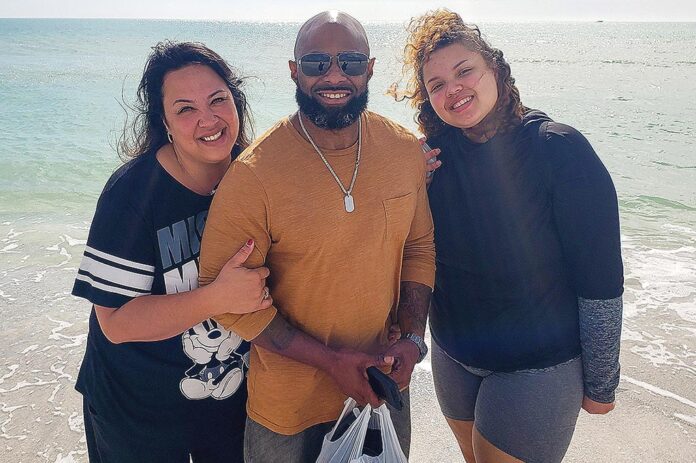
A Tualatin woman named Miss Black Oregon is now looking to serve as an ambassador for change not only for her state and community, but for Black women around the world.
21-year-old Michaela Loggins is a 2018 graduate of Tualatin High School and was crowned Miss Black Oregon last September. She will be representing Oregon in June at the Miss Black International Ambassador pageant in The Bahamas. Far from the typical beauty pageant, however, the event instead highlights and uplifts Black women who are determined to become change agents in their own communities.

For Loggins, the decision to take part in the pageant is part of a blossoming determination to embrace her cultural roots, fight against the racism and white supremacism in American society and work to improve the community around her.
“We all have that stigma of society of what beauty pageants mean,” Loggins said. “But this is about women who want to make a change in their community and their society. I keep saying all the time that I want to help, but I never really knew where to start and what that really looks like.”
After growing up as a self-described “sheltered” child in Tualatin, however, she enrolled at Portland State University. There, she is now a Pre-Med student and has gained exposure to the wider world. More recently, a friend taking part in the Miss Black Teen Oregon suggested she should look into taking part in the pageant, and it has turned out to be an eye-opening experience.
“It was an opportunity for me to really not only see what other women are doing in the community, but also to get ideas from them,” she said. “It’s literally iron sharpening iron. We’re just building off of each other. It’s more of a community than I feel like it’s a competition, it’s not a jealousy thing. It’s more a let’s uplift each other. It’s Black women, it’s a community, and I didn’t realize I needed it.”
Loggins and her two brothers, Devonne, 22, and Dominique, 19, moved to Tualatin from Florida with their parents, Lenard and Meme Loggins, when Michaela was just 11. Up to that point she had little awareness of racial politics or racism. As she put it, it was a “golden state” where she didn’t have to worry about fitting in.
“There was so much mix within our community, I didn’t have to worry about being the only person of any race, it was kids being kids and just hanging out,” she said.
By contrast, moving to Oregon, where over three-quarters of the population is white and less than two percent is Black, was a disconcerting experience. Even though her family has always embraced their roots in Black culture, Michaela found over time that she was simply trying to fit into the dominant white culture around her. By the time she reached high school she didn’t even realize what she had lost in the first place.
“I was just wanting to fit in and fit that stereotype of what a girl in high school is supposed to want, which is to be cool with everybody and have friends,” she said. “But I spent so much time trying to be like everyone else I didn’t take time to notice the things that made me different. I accepted I was Black like yesterday, that’s what it feels like. I went 20 years not realizing who I was.”
Her mother, Meme, recalled Michaela’s struggles vividly. Because her mother is mixed race and her father is Black, their children all have different skin tones; Michaela has the lightest tones of them all. This also is not a realization that white children grow up with.
“It was very quickly pointed out she had different hair,” Meme said. “They were like ‘You’re not really Black, you’re different, but not quite different enough.’ She struggled through middle school with that. Did she have too much slang? It was a challenge for her through high school.”
Michaela likened the experience to being put in a box. And now that she’s older, she finally realizes how stifling that has been to her.
“It’s like sometimes when I walk into a room, I feel like I have to, not perform, but I have to use discretion in what I can talk about or what people can understand or relate to,” she said. “I play a part of sorts. But when I’m in my community, people can relate to what I’m saying and I don’t feel like I’m crazy.”
She enrolled at Portland State in the fall of 2018, which was a starting point for an education in the real world. She started meeting other Black students and educators and got involved in the Reimagine Campus Safety Committee, which was tasked with coming up for solutions to campus public safety that meet the needs of all students and staff, particularly disadvantaged groups and people of color.
“She found this on her own, went through the advocacy program, and she has been getting coaching from mentors across the nation, learning how to talk to people,” Meme said.
Michaela took part last year in some of the early protests against police brutality and violence in the wake of the killing of George Floyd. But she stopped attending after becoming concerned over their direction after some protesters turned to property damage and other potentially violent tactics.
“When I went to the protests with other Black people, we stopped showing up around the second or third week, our numbers were dwindling fast,” she said. “Yes, that’s a risk; it’s a pandemic, but second, we still have a fear because Portland police, they are aggressive, they did not stop with the macing. The crowds of protesters that were doing it peacefully, even they were getting maced.”
Further, she said, some activists appeared to engage in attention seeking behavior at the expense of the larger message about police violence that most were trying to convey.
“It is important that people are going to people of color and asking what they felt,” Michaela said. “But I noticed there were a lot of people out attention seeking; it was weird. I know at one point there was a woman in the crowd in between the crowd and police, naked and doing yoga, and I was like ‘What are we protesting?’ She was causing a divergence; it was a ‘what got the most clicks’ type of thing. It took away from things.”
Last July, however, she really found her stride when she discovered the Miss Black International Ambassador pageant. Already well into the process of discovering her identity as a Black woman in a white world, the pageant pushed her further down the road of self-discovery.
“I remember being really nervous about this being my first year,” she said. “But after speaking with my interviewer she said it was refreshing to have new people in the pageant, and that sometimes in pageants you get crown chasers and people who are solely there to win a title.”
With the Miss Black International Ambassadors, however, the title is only the beginning.
“When you win you have to keep up with your community,” she said. “But you also have to travel and talk with women before and after you. It’s a constant sisterhood within the community and in the program. I wasn’t aware of that before applying. What was on my mind was I wanted to make a change in my community and I think Oregon needs to be put on the map. People need to know our story and to know there is diversity in Oregon.”
For information about the Miss Black International Ambassador pageant, visit: www.thembiapageant.com.


















